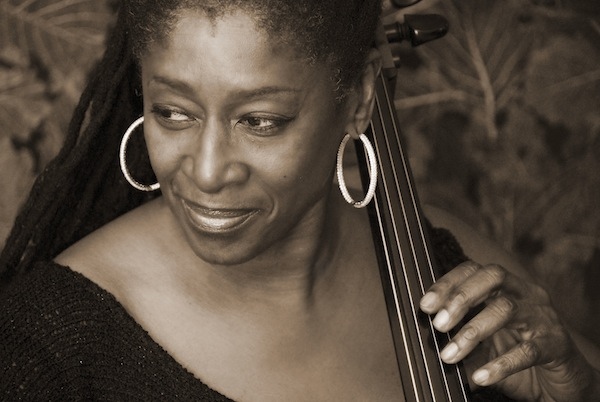Akua Dixon was born and raised in New York City. Shortly after Gayle Dixon, her sister and violinist, introduced her to the cello in 4th grade, Dixon began playing. Dixon then attended Manhattan School of Music, a school that was at the time only offering a track on European classical music. Dixon describes her post-graduation gig as a member of the Apollo Theater’s pit band as an important proving ground. She supported a diverse array of stars, from Rev. She developed an extensive idiomatic repertoire, supporting a diverse array of stars from Rev. Dixon was denied entry to most symphony orchestras for African-American musicians, to say nothing of women. She found her home at the Symphony of the New World where she had the Ellingtonian epiphany which led to jazz. She says, “I began immersing myself into jazz and spirituals and became determined to learn how to improvise.” It is difficult to emphasize the importance of Dixon’s contributions to jazz’s rise in visibility for bowed strings. The New York string scene was alive and well in the 1970s. Many of these talented players gathered together to form the String Reunion, an orchestra that included a total of 30 musicians. Dixon was the ensemble’s director for new music and provided the group with a constant stream of original arrangements and compositions. She also launched Quartette Indigo, her own string quartet. It made its debut at the Village Gate in big league with Gayle Dixon, Maxine Roach and John Blake Jr. Dixon worked closely with John Blake Jr., a jazz legend, as she was a founding member the Max Roach Double Quartet. Although she had worked hard to perfect her rhythmic drive supporting James Brown, it was a great experience learning how to phrase bebop alongside one of the idiom’s founding fathers. After many years of contributing her talents to recordings by masters like Don Cherry, Buster Williams and Carmen McRae, Dixon made her bold statement with 1994’s Quartette Indigo, a classic album featuring Ron Lawrence, Gayle Dixon, and John Blake Jr., which was reissued by 32 Jazz. She released a second album, Afrika!, in 1997, with the help of a grant from NEA. Afrika! (Savant) Lawrence and Marlene Rice, violinists Regina Carter u0026 Marlene Rice. The next decade was spent in education. She taught at several institutions and conducted dozens of concerts through the Carnegie Hall Neighborhood Concert Series. Dixon, however, has refocused her priorities to put her music first with the release of Akua Dixon. from http://www.akuadixon.com
